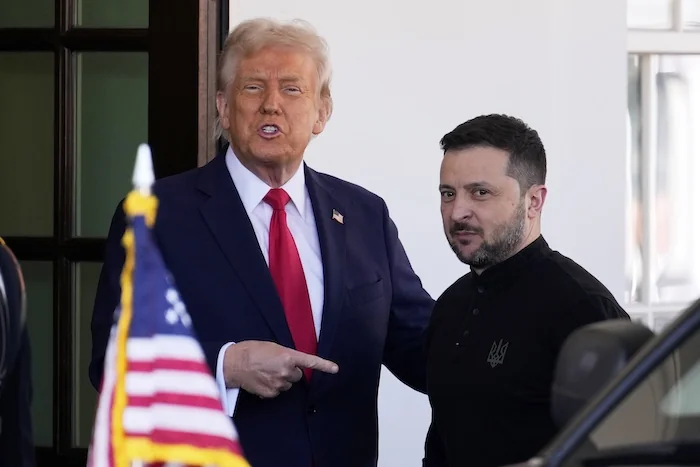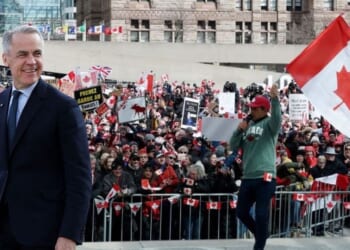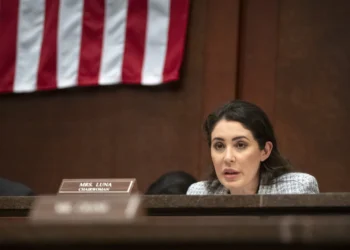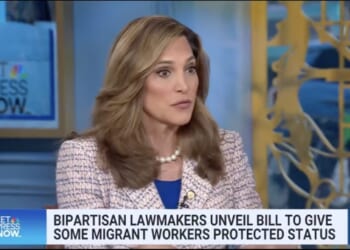Ukraine is benefiting from President Donald Trump’s recent frustration with Russian President Vladimir Putin, but Trump’s first six months in office show that no one knows if it will last.
Trump has prioritized trying to find a diplomatic resolution to the war, which has cost the lives of hundreds of thousands of Russians and Ukrainians over the nearly 3 1/2 years since Russia’s full-scale invasion, but through almost six months, his administration’s efforts have made little headway.
“He’s very nice all the time,” Trump said of Putin during his Cabinet meeting on Tuesday. “But it turns out to be meaningless.” The president also said Putin gives the United States “a lot of bulls***.”
Ukraine is the primary beneficiary of Trump’s souring feelings toward Putin.
On Thursday, Trump announced a new plan for the U.S. to send “weapons to NATO, and NATO is paying for those weapons” and that they will then “be given” to Ukraine, according to NBC News. That comes days after he told reporters that the U.S. would provide Ukraine with defensive capabilities that were briefly paused.
He also said he would make a related announcement Monday.
The announcements were welcomed developments for Ukraine, which has faced near-nightly aerial assaults featuring hundreds of attack drones and missiles in recent weeks.
While the aid will be helpful, it is unclear what the administration’s long-term plan will be regarding aiding Ukraine militarily and what its strategic goal will be if a ceasefire is not a viable option.
For Ukraine to have meaningful battlefield successes, “it really requires a strategic approach to the conflict that has never been implemented by the U.S. or NATO going back to February 2022,” former national security adviser John Bolton told the Washington Examiner. “I think that’s one of the reasons we’re in a form of gridlock now.”
Less than five months ago, Ukrainian President Volodymyr Zelensky, Trump, and Vice President JD Vance got into a heated discussion in the Oval Office in front of the media. Following the dispute, administration officials asked Zelensky to leave before he and Trump could finalize an agreement for U.S. investment into Ukraine’s natural minerals for a portion of future proceeds that would act as reimbursement for U.S. military aid given to Ukraine.
The Defense Department briefly paused aid and intelligence sharing with Ukraine in response to what seems to be the lowest point of the U.S.-Ukraine relationship since the start of the Russian invasion in February 2022.
“I think Zelensky has worked hard on this, particularly after the incident in the Oval [Office] in February, but his trouble with Trump is that Trump sees these state-to-state relations through the prism of his personal relations with the leader of the country,” Bolton added. “I give him a lot of credit, he’s kept his eye on the ball and tried to find ways to deal with Trump, and in this most recent period, I think it’s been successful.”
A little more than a week before the Oval Office dust-up, Trump called Zelensky “a dictator.”

Considering how Trump’s feelings toward Zelensky and Putin have oscillated since he became president, Bolton said he believes “it’s possible that Trump can go back to believing that Putin is his friend in due course.”
Earlier this week, Secretary of State Marco Rubio met with Russian Foreign Minister Sergey Lavrov in Kuala Lumpur, Malaysia, while they attended the Association of Southeast Asian Nations Regional Forum.
Rubio told reporters after their huddle that Lavrov presented “a new idea, a new concept,” but did not provide details on it, adding, “I wouldn’t characterize it as something that guarantees peace, but it’s a concept that we’ll take back to the president.”
He also said the U.S. was discussing with European allies the possibility of them giving Patriot batteries, a key air defense system, to Ukraine.
“There’s been a reluctance on the part of the administration to conduct a full-scale, more comprehensive security assistance campaign to help the invaded Ukraine deal with the invader Russia more effectively,” Bradley Bowman, a senior director at the Foundation for the Defense of Democracies, told the Washington Examiner.
Bowman called the time ahead of Monday’s announcement “an inflection point,” though he noted Trump is “often swayed by who briefed him last.”
Congress is considering legislation to increase U.S. sanctions on Russia that have been in place before the full-scale invasion began. The bill has gained momentum within the Republican Party, in particular, coinciding with Trump’s souring of Putin.
TRUMP’S FIRST SIX MONTHS TESTS US DEFENSE STOCKPILES — AND LIMITED PRODUCTION
Senate Majority Leader John Thune (R-SD) said Wednesday that the upper chamber of Congress had “made substantial progress on Sen. [Lindsey] Graham’s overwhelmingly bipartisan Russian sanctions legislation to enhance President Trump’s leverage at the negotiating table.”
Trump, during the Cabinet meeting, said he was “looking at” the bill.















